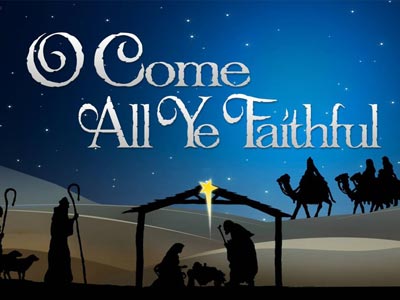-
Good And Faithful Servants Series
Contributed by Victor Yap on Sep 27, 2025 (message contributor)
Summary: Parables for Christian Living, Pt. 8
GOOD AND FAITHFUL SERVANTS (MATTHEW 25:13-30)
Newsweek magazine published the results of an interview with respondents two years before the actual countdown to the new millennium of 2000 began in earnest. People were asked this question: “If money were no object, how would you like to prepare for the arrival of the new millennium?”
Of the respondents, 26 percent said they would spend a day being pampered at a spa. Two groups of people are tied at 16 percent - one group prefers to spend six months with a personal trainer, but another group has loftier ambitions: they would have an item made to order by a famous jeweler. 14 percent state they would like to have an outfit specially designed by a couturier.
A small cross-section of the respondents has contrasting wishes. 7 percent wish to take dance lessons with John Travolta or Paula Abdul, while the smallest, 3 percent minority think of getting plastic surgery. (Newsweek, 12/8/97)
The parable of the talents is about three servants entrusted with riches beyond their belief. An owner going for a long time on a distant journey distributed his wealth generously among his servants. Two of the servants made a fortune from what they had but one made a mess of what he had.
What should be our attitude with what God has given us? How should we take action? Why should we add and multiply what we have instead of staying stagnant and being unfruitful?
Stewardship Is About Employing Resources, Not Emphasizing Riches
13 “Therefore keep watch, because you do not know the day or the hour. 14 “Again, it will be like a man going on a journey, who called his servants and entrusted his property to them. 15 To one he gave five talents of money, to another two talents, and to another one talent, each according to his ability. Then he went on his journey. 16 The man who had received the five talents went at once and put his money to work and gained five more. 17 So also, the one with the two talents gained two more. 18 But the man who had received the one talent went off, dug a hole in the ground and hid his master's money. (Matt 25:13-18)
Former Secretary of State Condoleezza Rice spoke frankly of her family upbringing when she was the 2004 graduation speaker of Vanderbilt University. She talked of growing up in Birmingham, Alabama, before the civil rights movement, a place once described as the most thoroughly segregated city in the country. She credited her paternal grandfather for shaping and changing her family’s life. She said of her grandfather:
He died before I was born, but he was a huge figure in our lives. Granddaddy Rice was a sharecropper's son in Ewtah, Alabama, and one day he decided he was going to get book learning, so he asked in the parlance of the day how a colored man might get to college. They told him about 50 miles down the road there was this little Presbyterian college called Stillman, and if he would go there he could get an education. So he saved up his cotton, and he took off for Tuscaloosa, and he finished his first year of college.
And they said, “Now, how are you going to pay for your second year?” He said, “Well, I'm out of cotton.” They said, “You're out of luck, you'll have to leave Stillman.” And so he said, “Well, how are those boys going to school?” And they said, “Well, you see, they have what's called a scholarship, and if you wanted to be a Presbyterian minister then you could have a scholarship too.” And my grandfather said, “Well, you know, that's just what I had in mind.” And my family has been Presbyterian and college-educated ever since. (Los Angeles Times, 6/13/04, “This World ‘was Built by Optimists, not Pessimists’”)
In His bodily absence, God meant us for hard work and utmost progress, not easy living or minimum output. “Watch out” (v 13 Therefore keep watch, because you do not know the day or the hour) is an expectant, energetic and eschatological imperative. It occurs quite late in the gospels (Matt 24:42, Mark 13:35). The words describing the “journey” (v 14) traveled by the owner are the same words used for the distance covered by the owner in the parable of the vineyard (Matt 21:33; Mark 12:1; Luke 20:9) and the prodigal son in leaving home (Luke 15:13). We are all responsible to use what God has given us. What God has given us is called “property” (v 14) in the NIV. Property doesn’t mean real estate; the term means “goods” or “possessions” and has been used of the means Jesus’ women followers used for supporting the group (Luke 8:3), the possessions of the rich fool (Luke 12:15), and the possessions Zacchaeus gave away (Luke 19:8). Further, the term is plural in Greek. What God has given us is more than enough to supply our needs. In fact, He gave generously, abundantly, and lavishly. Even the one with only one talent has a lot. D.A. Carson argues that the talent was a sliver talent on the basis of the Greek word argurion (vv 18, 27), estimating the weight of a silver talent to 58-80 pounds and pegging a talent of silver to 6,000 days of work for a common laborer (Expositor’s Commentary , “Matthew,” p. 516). That amounts to 20 years of salary, enough for one to be a millionaire, start a business or buy a few houses. God gave everyone not according to the individual’s wants, but according to his ability and capacity.

 Sermon Central
Sermon Central



